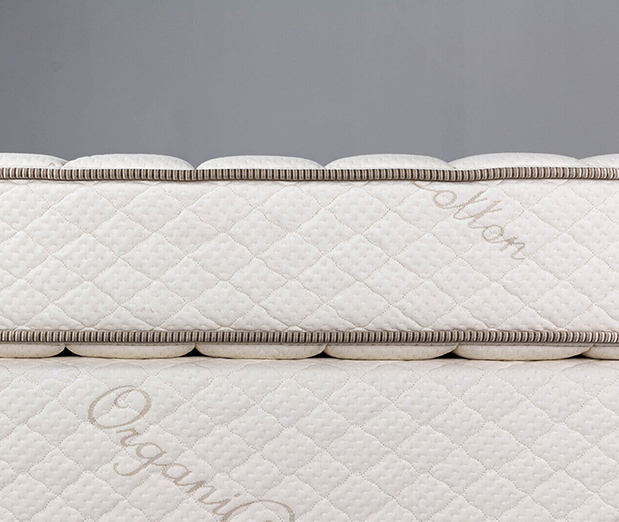No products in the cart.
Blog, Latex Mattresses, Mattresses
Latex Mattress Pros and Cons
Pros and Cons of a Latex Mattress
Latex mattresses are known for their unique blend of comfort, support, and durability. They are a popular choice for many sleepers, but they are still considered underground, so their availability is limited. Especially if you want to try one but don’t live in a big city. And like any product, they come with their own set of advantages and disadvantages. Here’s a look at the pros and cons of latex mattresses to help you decide if one is right for you.
The Pros
1. Comfort and Support
Excellent Support: Latex mattresses provide strong support for the body, helping to maintain proper spinal alignment. This can alleviate pressure points and reduce the risk of back and neck pain. They are the Cadillac of the foam mattress market. You won’t find a more supportive or luxurious foam product.
Comfortable: Latex conforms to the body’s shape while providing a comfortable sleeping surface. It’s often described as a combination of firm support and gentle cushioning.
2. Durability
Long-Lasting: Latex mattresses are known for their longevity. High-quality latex can last up to 15 years or more, making it a good investment.
Resilience: Latex retains its shape and support over time, unlike some other types of mattresses that may sag or become lumpy. There is a caveat here. There is maintenace required. Proper flipping and turning of layers is extremely important. This is the reason you want to make sure your latex mattress has a zippered cover.
3. Hypoallergenic Properties
Resistance to Allergens: Natural latex is resistant to dust mites, mold, and mildew, which makes it a good option for people with allergies.
Antimicrobial: Latex has natural antimicrobial properties, helping to maintain a cleaner and healthier sleeping environment. If allergies are a concern for you make sure you got with 100% natural latex and an organic cotton and wool cover.
4. Eco-Friendliness
Natural and Renewable: Natural latex is made from the sap of rubber trees, which is a renewable resource. Many latex mattresses are also biodegradable, reducing their environmental impact.
Free of harsh chemicals: Many natural latex mattresses are made without harmful chemicals and fire retardants, which can be a significant advantage for those concerned about off-gassing and chemical exposure.
5. Temperature Regulation
Breathability: Latex has an open-cell structure that allows for better air circulation. 100% natural latex mattresses also have pinholes or other ventilation features that enhance breathability.
Cool Sleep: This breathability helps to regulate temperature and keep sleepers cool, which can be beneficial for those who tend to sleep hot. However, most of the coolness comes from the organic cotton and wool cover that allows for the natural circulation of air.
The Cons
1. Cost
Expensive: Latex mattresses tend to be more expensive than other types of mattresses. The higher cost can be a barrier for some consumers.
Initial Investment: While they are durable and long-lasting, the upfront cost of a latex mattress can be significantly higher than other options. The more natural and organic you desire the more the cost increases.
2. Weight
Heavy: Latex mattresses are generally heavier than other types of mattresses, making them difficult to move or rotate.
Inconvenience: The weight can make it challenging to handle, especially during setup or cleaning. For this reason, opt for a latex mattress made of layers and a zipper off cover so the mattress can be easily moved.
3. Firmness
Too Firm for Some: Some people find latex mattresses to be too firm, especially if they prefer a softer, more plush sleeping surface.
Limited Softness: While latex mattresses come in various firmness levels, they may not offer the same level of plushness as memory foam or pillow-top mattresses. You really need to speak to a sleep specialist about firmness. The right company with using Talalay and Dunlop latex can make a super soft plush mattress. Your latex mattress should be customized to you!
4. Off-Gassing
Initial Smell: Although less common with 100% natural latex, some latex mattresses (especially synthetic or blended latex) may have an initial odor when first unpacked. This off-gassing usually dissipates over time but can be bothersome initially. If the latex is not 100% and the cover is not organic you will have off-gassing. You might find with the organic latex and organic cover that it smells like a barn. Afterall, these are natural products from nature, so they are not odorless. And the good thing is they are not loaded with chemicals.
Allergic Reactions: While rare, some individuals may be allergic to latex. It’s essential to ensure that the latex used is thoroughly washed and processed to reduce the risk of allergic reactions. If you think you are allergenic as for a small sample of latex to test it.
5. Availability
Limited Options in Stores: Latex mattresses are not as widely available in brick-and-mortar stores as other types of mattresses, which can make it difficult to try before you buy.
Online Purchases: Many latex mattresses are sold online, which means you may not have the opportunity to test the mattress in person before purchasing.
